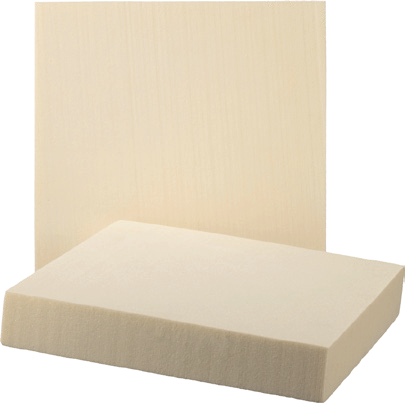
Polyisocyanurate (PIR) is a new type of organic polymer insulation material with high mechanical strength, durability, corrosion resistance, and mold resistance, offering excellent insulation for cooling applications to meet various requirements.
Polyisocyanurate (PIR) is a new type of organic polymer insulation material with high mechanical strength, durability, corrosion resistance, and mold resistance, offering excellent insulation for cooling applications to meet various requirements. PIR is made primarily from isocyanate and polyol, along with catalysts, flame retardants, and eco-friendly foaming agents. These ingredients are thoroughly mixed, reacted, and foamed through specialized formulations and strict process conditions to create a foam polymer. PIR provides efficient and stable insulation for equipment and pipelines within a temperature range from -196°C to 120°C, making it suitable for ultra-low-temperature applications, such as liquid nitrogen (LN2, -196°C), liquefied natural gas (LNG, -162°C), liquid ethylene (LEG, -104°C), and liquefied petroleum gas (LPG, -48°C). It offers a wide operating temperature range, excellent dimensional stability, and high plasticity, allowing customization into different shapes according to customer requirements. PIR is widely used for insulation in refineries, chemical plants, ethylene and fertilizer facilities, cold storage, and LNG installations.
